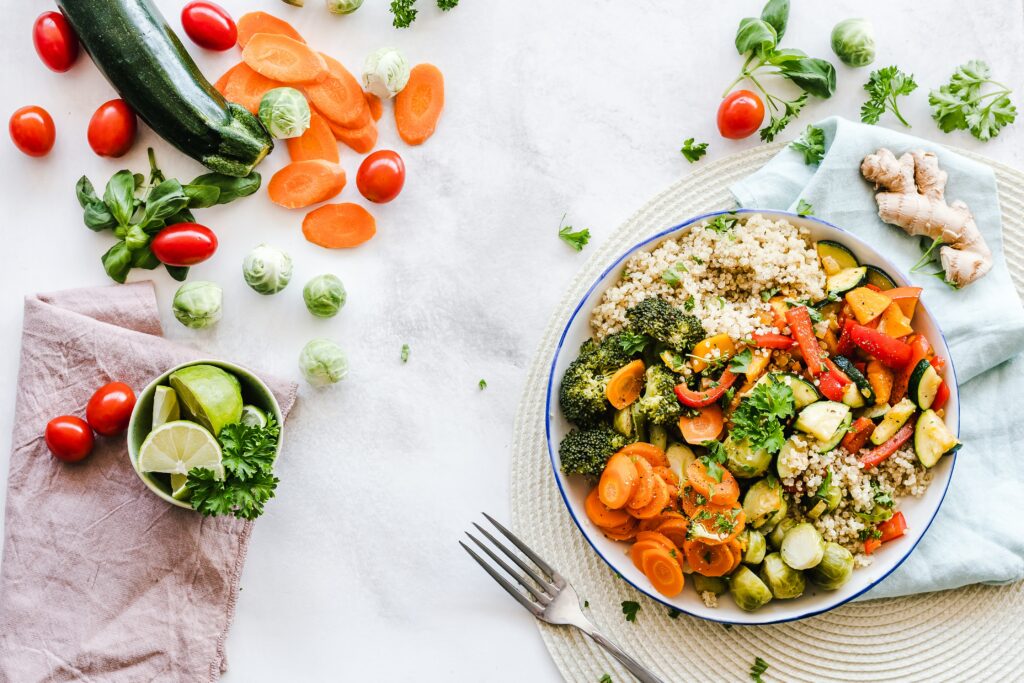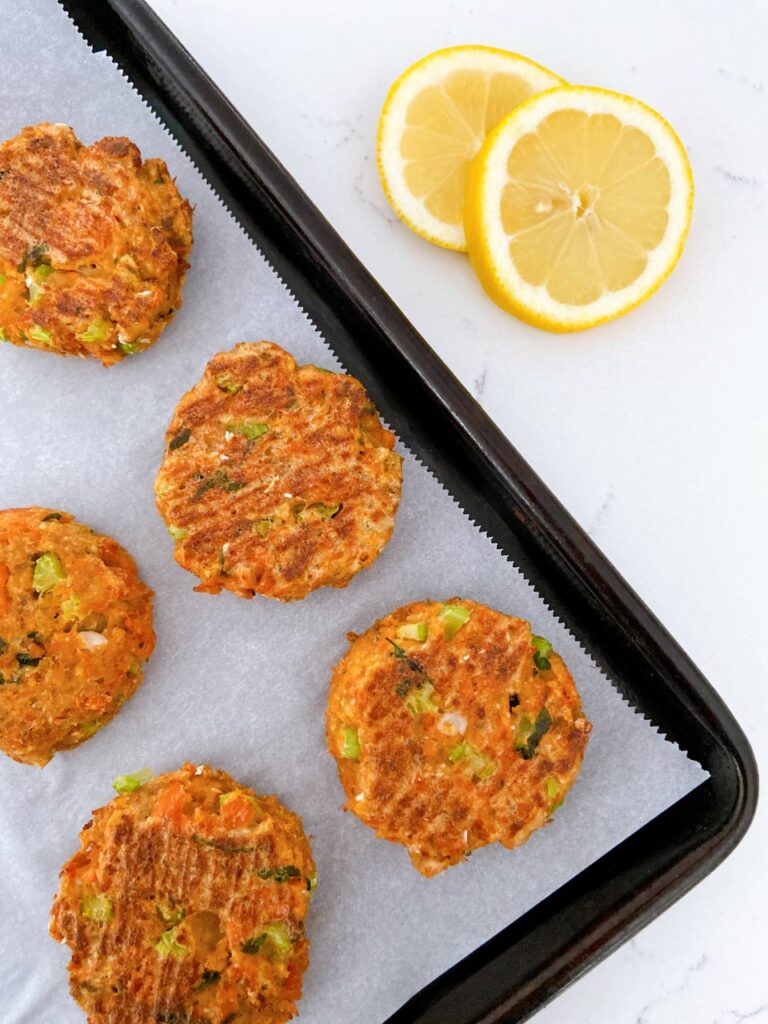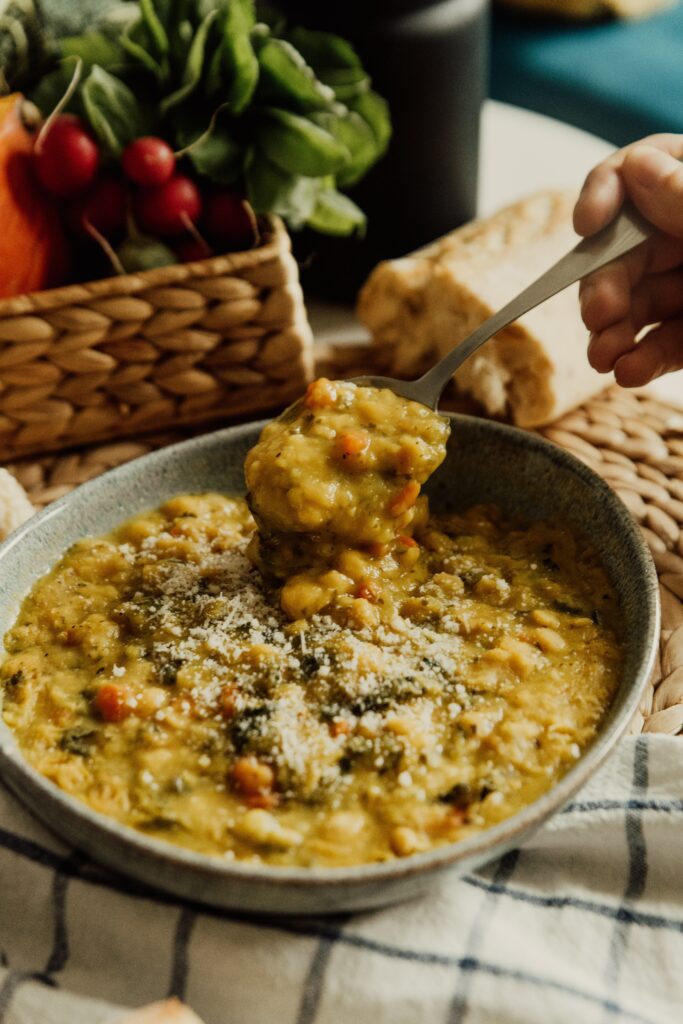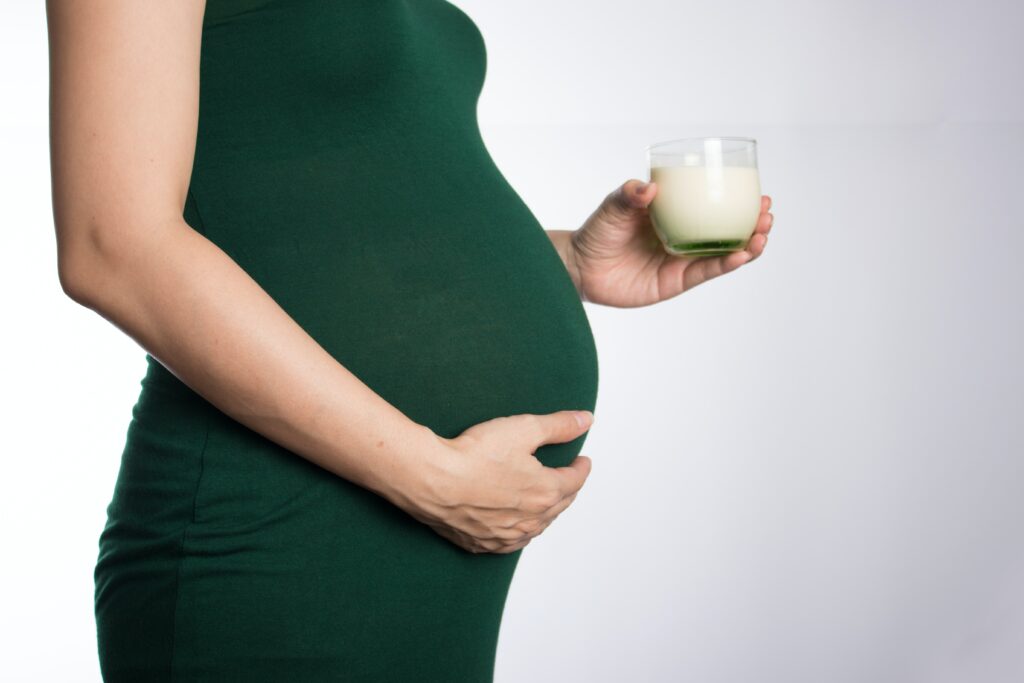Written by: Christina Iaboni, MHSc, RD
Healthy eating is important at any stage of life. During pregnancy, it is important because the food that you eat provides the nutrients that your baby needs to baby grow and develop. Healthy eating also helps reduce the risk of pregnancy related complications such as anemia or high blood pressure and it gives you the energy you need to feel your best.

The basic principles of healthy eating apply during pregnancy. These include:
- Eating a variety of fruits and vegetables each day
- Choosing whole grains over refined grains most often
- Limiting sodium, sugar, and saturated fat
- Including protein-rich foods at meals and snacks
- Cooking your own food
- Making water your drink of choice
In today’s blog post, we are focusing on some of the important nutrients during pregnancy and how to include them in your diet.
Omega-3 fatty Acids
Omega-3 is an essential fat that is needed for the development of your baby’s brain and eyes.
There are three types of omega-3 fats:
- ALA which is found in plant-based sources such as canola oil, walnuts and flaxseeds.
- DHA and EPA which are found in fatty fish like salmon, sardines and trout.
DHA and EPA are most important for brain health and development. Our body can convert very small amounts of ALA to DHA and EPA. It is recommended to consume at least two servings of fatty fish per week to get adequate omega-3 fatty acids. One serving is about 4oz of cooked fish. Make sure you are choosing low mercury options. Some foods, such as eggs, yogurt or cereals can have added omega-3 fats but the amount in these foods varies, and it is usually lower than the amount in fish.
Some women may have aversions to the strong smell of fish during pregnancy. To help, try cooking with the windows open, have your partner or a support person prepare the fish, or try canned salmon or tuna and mix it with other ingredients. This recipe for easy baked salmon patties is also a great option – canned salmon is low in mercury and this recipe combines it with breadcrumbs and herbs which help reduce the “fishiness” and mellows out the flavor and smell.

If you don’t eat fish, speak to your healthcare provider about taking a supplement. Some prenatal vitamins contain omega-3 as well.
Iron
Iron is important to help your body make red blood cells. Your body needs iron to make hemoglobin, which is a protein in red blood cells. Hemoglobin carries oxygen from your lungs to the rest of your body, including your growing baby. During pregnancy, blood volume increases by 30-50%. It is important to make sure you are getting enough iron to support this growth(1).
To help ensure you are getting enough iron, be sure to take your prenatal vitamins and include iron-rich foods at meals and snacks.
There are two types of iron found in food– heme iron and non-heme iron. Heme-iron is only found in animal foods and is more easily absorbed by the body. Meat, chicken, and fish are good sources of heme iron.

Non-heme iron is found in plant-based foods like beans and lentils, grains and fortified breakfast cereals, green leafy vegetables, dried fruit, nuts, and seeds. This type of iron is not as well absorbed however adding a source of Vitamin C can help increase absorption. For example, adding red bell peppers or oranges to a spinach salad, adding sliced strawberries to cereal, and adding tomatoes and red peppers to a black bean or chickpea salad.
Calcium
Women who are pregnant or breastfeeding have higher calcium needs. Calcium is important to help support the growth of your baby’s bones and teeth as well as heart, nerves, and muscles. If you don’t get enough calcium from your diet, it will be taken from your bones to provide for baby. Women who don’t get enough calcium during pregnancy are at an increased risk of osteoporosis later in life.

Good sources of calcium include:
- Dairy products like milk, yogurt, and cheese
- Fortified Milk alternatives – soy, almond and other nut milks, and oat milk that have added calcium
- Cannes salmon with bones (the bones are soft and can be mashed with a fork)
- White beans
- Dark green leafy vegetables
Folate
Folate is a B vitamin that is naturally found in food. Folic acid is the supplemental (synthetic) form found in vitamins and it is also added to foods. They are both types of a B vitamin that our body uses to help build new cells. Folic acid/folate is also important in early pregnancy because it helps form the neural tube. Getting enough folic acid can help prevent serious birth defects. It is recommended that women of childbearing age take 400 mcg of folic acid every day. The neural tube starts forming very early in pregnancy, around 3-4 weeks after conception. At this point, most women won’t even know they are pregnant, which is why it is important to take folic acid before pregnancy.
Folate is found in a variety of healthy foods including:
- Green vegetables
- Beans and lentils
- Whole grains
- Sunflower seeds
- Peanuts
- Eggs
- Fruits such as cantaloupe, strawberries, papaya, oranges and grapefruit
- Fortified foods – folic acid is added to cereals, breads, and pasta
Eating healthy and taking prenatal vitamins will help ensure that you are getting the nutrition you need to support your growing baby. It will also help reduce your risk of pregnancy related health risks, such as low-iron, and give you the energy you need to fuel your day. Enjoy a variety of healthy foods daily and speak to your doctor or a dietitian about any concerns you have about your diet.
Reference: Treat Iron Deficiency Naturally During Pregnancy | American Pregnancy
*This article is for informational purposes only, be sure to talk to your healthcare provider or a registered dietitian about your individual needs
